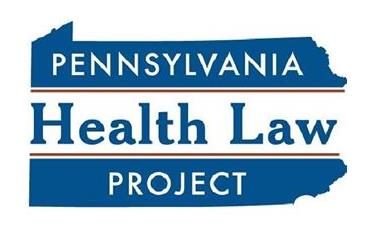-
Getting Medical Assistance for a Child with a Disability, Behavioral or Autism Spectrum Disorder under the PH-95 Category and Neshaminy's School-Based Access Program
The School-Based ACCESS Program (SBAP) allows school districts to receive federal Medicaid reimbursement for providing health-related services to medical assistance eligible children as part of their Individualized Education Plan (IEP).
SBAP is a federal initiative allowing participating school districts to receive partial reimbursement for health-related services documented in the Individualized Education Programs (IEPs) of Medicaid-eligible students. To be billable under Medicaid, services must be clearly outlined in the student’s current IEP, including frequency, duration, and whether the service is provided individually or in a group setting. The reimbursement the district receives does not impact the students' Medicaid eligibility or ability to access services outside of school.
SBAP is a cooperative effort between the Pennsylvania Department of Education (PDE), the Pennsylvania Department of Public Welfare, the federal Centers for Medicare and Medicaid Services, and contractor Sivic Solutions/Solix.

Reimbursable services include:
-
-
-
-
- Assistive devices
- Audiology
- IEP Meetings
- Interpreter services (limited)
- Nursing (RN, LPN)
- Occupational therapy
- Orientation and mobility
- Personal care assistants
- Physical therapy
- Physician
- Psychiatry
- Psychology
- Social work
- Speech/Language/Hearing
- Teacher of the hearing impaired
- Special transportation
- Vision (limited)
-
-
-
Parental Information
Parents and guardians must be notified of the intent to bill Medical Assistance for SBAP services. Participation in the SBAP is voluntary. Upon receipt of the notification, parents may give permission, deny permission, or elect not to reply at all. At any time, a parent or guardian may withdraw permission to bill. This request can be verbal or in writing.
Eligibility Determination
Located within the Department of Welfare, the Office of Income Maintenance — through its County Assistance Offices — is responsible for determining eligibility for programs funded with federal dollars. Included are Medical Assistance, Cash Assistance, Food Stamps, Employment and Training, the Low Income Home Energy Assistance Program, and others. Each program has unique guidelines and requirements for eligibility. With regard to medical assistance eligibility for students, income limits may vary based on the age of the student and other factors. It is feasible that one student in a family qualifies for Medical Assistance, but his or her siblings do not qualify. A student receiving Social Security Income is automatically eligible for Medical Assistance.
Medical Assistance Loophole Provision
There are many advantages to enrolling students in Medical Assistance. Medical Assistance pays for wrap-around mental health services and other types of services that are not routinely covered under private insurance. Most families will not qualify for Medical Assistance or Social Security Income because the family income exceeds program limits.
For disabled students, there is a special eligibility vehicle, commonly referred to as the Medical Assistance Loophole. Under this provision, a student meeting the Social Security Administration’s disability standards may be eligible for Medical Assistance, based on meeting the standards and the income of the student, not the family.
Universal Application
There is an eligibility application for students. It is used to apply for Medical Assistance coverage or coverage through the Pennsylvania Child Health Insurance Program (CHIP). The name of the common application is Application for Health Care Coverage. Should the student be ineligible for one program, but feasibly eligible for enrollment in another program, the application is automatically referred. Only students enrolled in Medical Assistance are eligible for billing in the SBAP.
Parents can apply for Medical Assistance coverage through their local Assistance Office or by visiting the Compass website. Compass is an online application for Pennsylvanians to apply for many health and human service programs.
Eligibility Continuation
Regardless of the method used to determine eligibility, families must take action to ensure continued eligibility. Any changes in address, private insurance coverage, and other circumstances impacting current coverage should be referred to the case worker assigned to them. Notices to families from the County Assistance Office pertaining to eligibility continuation must be responded to, in order to ensure eligibility does not end.
For more information about this program please visit the following links:
Pennsylvania Health Law Project website
FAQ: Medical assistance for a child with a disability, behavioral or autism spectrum disorder
-

